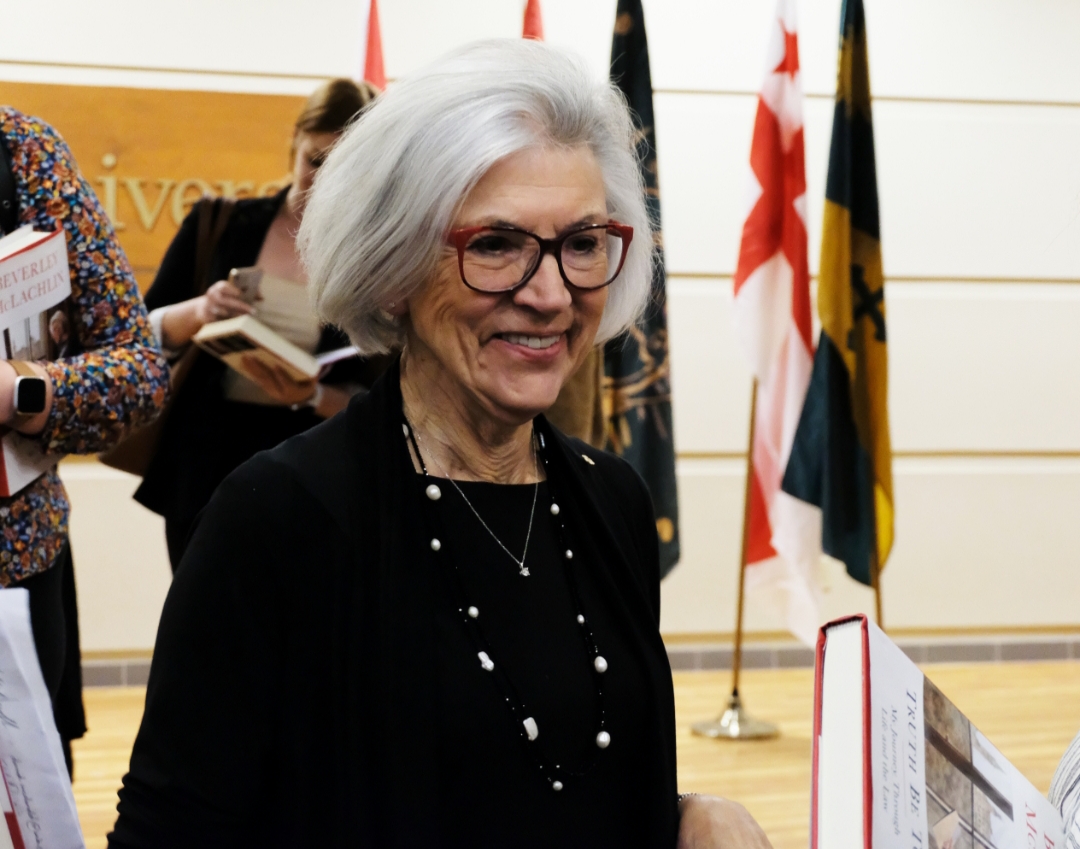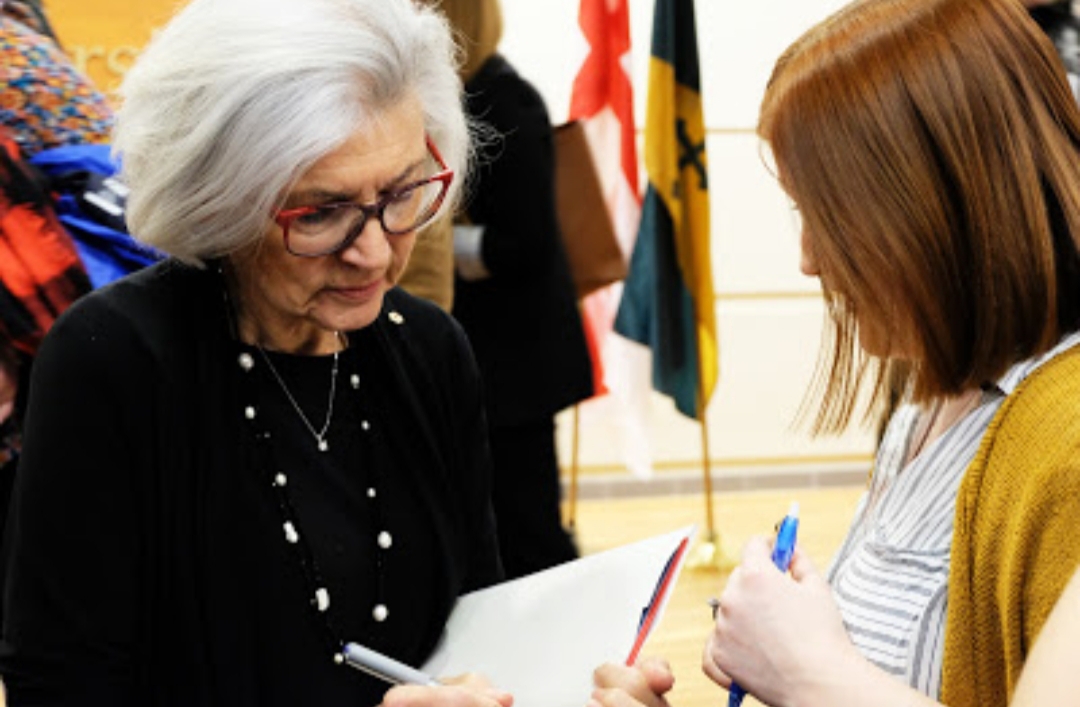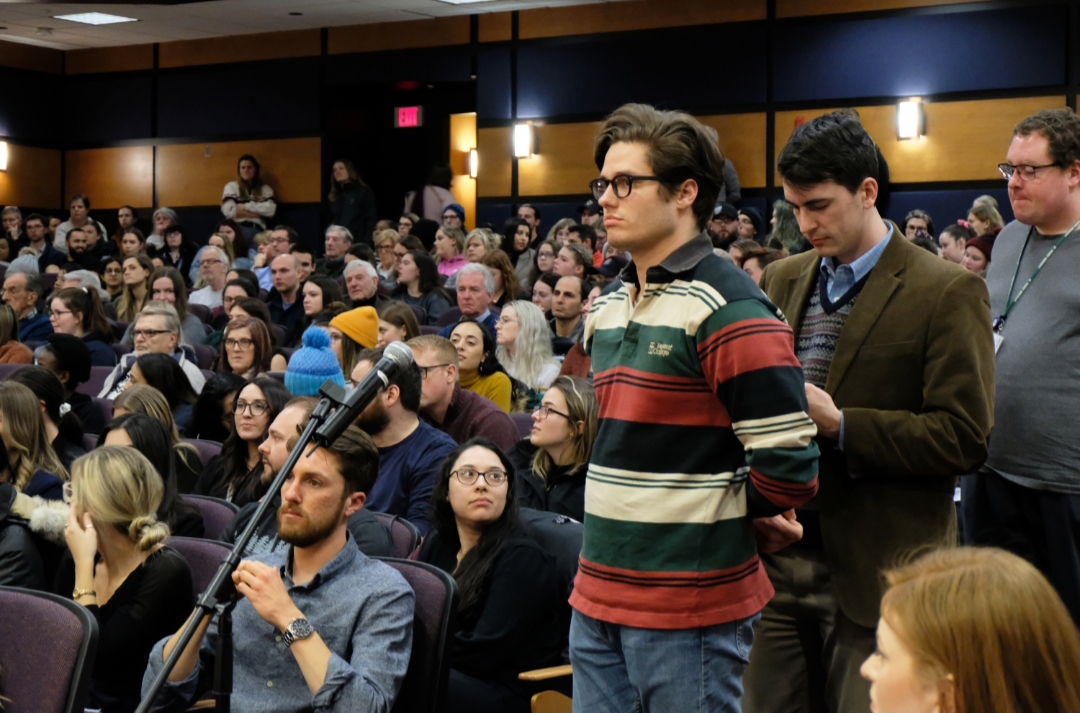
Former chief justice of Canada, Beverley McLachlin, considers reconciliation between Indigenous and non-Indigenous Peoples to be one of the most important processes which Canada is currently engaged in. She said, though it’s difficult, it’s necessary for moving forward in harmony as a country.
“We have our blemishes and our bad spots. But in the end, we’ve always come together, rather than segregating part of the population and denying their rights to be full partners,” she said at the Dr. Abdul Q. Lodhi Memorial Lecture in Human Rights.
McLachlin delivered the annual lecture on Feb. 6 to a packed Kinsella Auditorium, with the audience made up of both students and community members.
McLachlin became the first woman to hold the position of chief justice of Canada when she was appointed in 2000. She rose through the courts at an unprecedented speed, having only started her judicial career in 1981 when she was appointed to the Vancouver County Court.
Though she has excelled in her judicial career, McLachlin said she didn’t consider law until well into adulthood. She grew up on a ranch in Alberta and described herself as “an ordinary girl.”

“From a very early age, all I knew was that I wanted to do something that wasn’t ordinary. Because for a small girl growing up in a remote prairie town in the 1940s, the ordinary was very ordinary indeed,” she read from the first chapter of her book Truth be Told: My Journey Through Life and the Law.
McLachlin was told by a teacher in Grade 8 that she had one of the lowest alertness scores they had seen after testing her for her compatible career paths, but also an extremely high reading retention score. The teacher went on to tell her that she wouldn’t be able to do much with the reading retention “as a woman.”
Throughout the lecture, McLachlin described various barriers she faced as a woman moving through the law, and then judicial careers. The first legal firm she applied to turned her away because she was married.
“It was an unspoken rule. When a woman married, she was expected to give up all outside activities to focus on her husband and the home.”
McLachlin landed an articling job at the next firm she applied to, with a male lawyer who believed that “the world was changing.”
She eventually moved to Vancouver, where she taught in the Faculty of Law at the University of British Columbia for seven years. It was during this time that McLachlin became a mother, which she described as a revelatory experience.

“I was privileged. I had enough money to pay for some help. And I could have more flexibility in hours and I just wondered about all those women, and how they could do it when they had to work 9 to 5,” she said.
McLachlin said her experience as a mother inspired her to work on cases relating to the rights of women, along with other minority groups. Throughout her career she made influential decisions concerning social issues such as gay marriage, reproductive rights, Indigenous rights, and the right to assisted suicide.
She retired from the court in 2017 after almost 18 years as the chief justice of Canada, and many more serving as a judge and lawyer before that. Though she was made to retire due to mandatory retirement laws, she said she “had a very good run and was ready to go.”
Though McLachlin said she thinks the mandatory retirement laws are discriminatory, she was happy with her time as chief justice. She has become the example of a woman in law which she did not have as a child and looks forward to enjoying retirement.
“The world was divided into two realms. One of men and one of women. Women were occasionally allowed to venture into the realm of men, but only to the extent required to accomplish what the man wanted or needed. For better or for worse, I was committed to making deeper inroads into the realm of men.”
